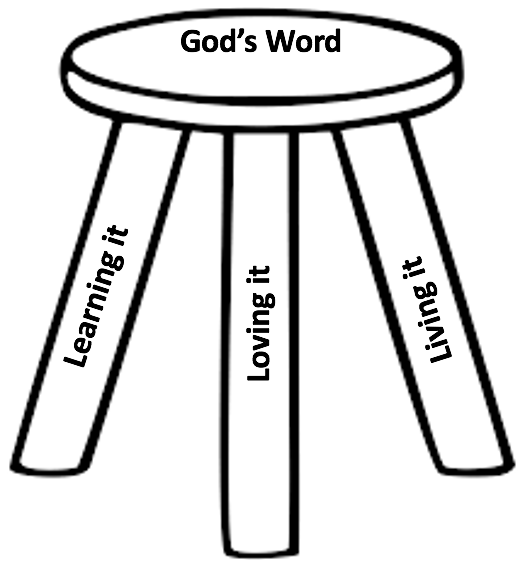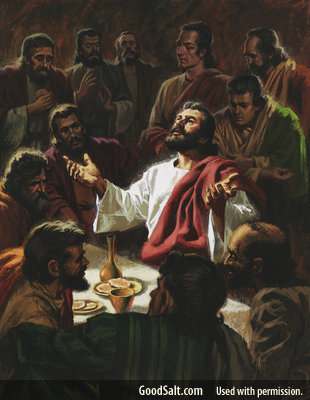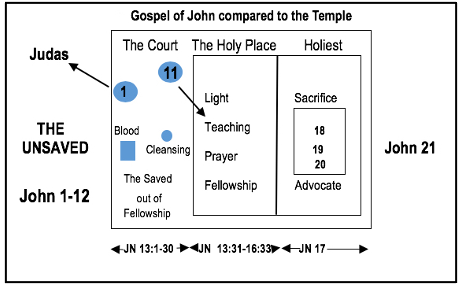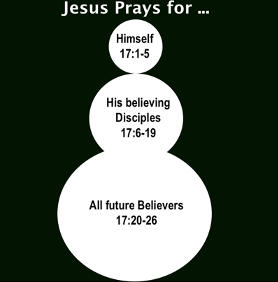“20 I do not pray for these alone, but also for those who will believe in Me through their word; 21 that they all may be one, as You, Father, are in Me, and I in You; that they also may be one in Us, that the world may believe that You sent Me.” John 17:20-21
This past year has been filled with many challenges, one of which is the increasing division in the USA. Animosity has been on the rise between people of differing political persuasions, worldviews, and skin color. As one of my mentors said to me recently, we know who is responsible for this. He was referring to the devil or “evil one” as Jesus refers to him in John 17:15. Satan is an expert at dividing people, especially God’s people. His primary targets are Christian marriages and Christian churches because both of these institutions reflect the image of God more than any other institution on the planet. If he can divide the people in these institutions, he can greatly reduce the impact of God’s power and presence in society today. And right now I would say Satan is quite successful in doing this. But God is still at work despite the devil’s advances.
With that said, we are going to resume looking at Jesus’ prayer to His Father in heaven in John 17 which teaches us to pray like Christ prays. So far we have discovered that like Jesus, we are to pray…
– For God to be glorified when we face trials (John 17:1-5)
– For those we disciple (John 17:6-19) which includes…
~ Praying fortheir receptivity to God’s Word (John 17:6-8).
~ Praying for their protection from the world and the evil one (John 17:9-15).
~ Praying their purification through God’s Word (john 17:16-19).
Jesus now widens His prayer circle to include all future believers. From this we see that LIKE JESUS, WE ARE TO BROADEN OUR PRAYERS TO INCLUDE ALL FUTURE BELIEVERS IN CHRIST (John 17:20-26). Christ prays for three things for these future believers. From Jesus’ example, we learn first to pray for THEIR UNITY, SO THE WORLD CAN BELIEVE IN JESUS (John 17:20-23). Jesus prayed, “I do not pray for these alone, but also for those who will believe in Me through their word.” (John 17:20). Christ did “not pray for these [Eleven disciples] alone, but also for those who will believe in Me through their word.”
It is about two thousand years later, and Jesus says, “My prayer is for you.” You and I are some of those future generations who have believed in Him because of the disciples’ message. “The disciples / apostles with him that night would proclaim the gospel through their preaching and through their Holy-Spirit-inspired writings, which would become the New Testament.” 1
We still read the apostles’ message today. We are reading the gospel of John, the message of one of those He was praying for earlier (John 17:6-19). It is mind boggling to think that Jesus prayed for us at that time. Think of the millions of lives and circumstances that this one sentence spans from the first century to the twenty-first century!?! Think of the numbers of people, the numbers of situations and circumstances this includes. Think of your own life. Jesus is praying for you. That is how much He cares about you!
Jesus “prayed” for us and Jesus “prays” for us. Not only did He pray for us two thousand years ago, but He still prays for us today. His prayer for us today is not written down, but it is promised. Jesus Christ Who died and was raised to life, is at the right hand of God and He is interceding for us today (Romans 8:34; Hebrews 7:25). Christ is praying for you and me right now. That’s incredible! Jesus did not have to pray for us. God the Father will hear us without Jesus carrying a message. But that doesn’t mean that Christ doesn’t pray for us. God loves us enough to hear our voice. The Father hears us directly. Jesus is saying, by the way, I’m praying for you. I’m talking to God for you.
Romans 8 tells us that not only is the Father listening to us (Romans 8:15-16), and the Spirit is praying within us with words that we don’t even understand (Romans 8:26-27); but the Son is also praying for us (Romans 8:34). So we have the Father and Son and Holy Spirit involved in our prayer life. We have a better prayer life than we may have first thought! The Holy Spirit has been praying and Jesus has been praying. When we add our prayers to their prayers that’s a pretty good chance of getting an answer. Somebody may ask, “Does that mean I don’t have to pray again. Can I cut that out of my life?” No. God says we are to add that to our prayers. That’s an incredible prayer life that we have, isn’t it?!
As Jesus prays for all who will believe in Him from the first century to the twenty-first century, He prays: “That they all may be one, as You, Father, are in Me, and I in You; that they also may be one in Us, that the world may believe that You sent Me.” (John 17:21). Christ prayed for these future believers to “be one” and experience the same unity as He and the Father have in their relationship. This is a fundamental unity of purpose, love, and doctrine. 2
“The Father and the Son were one and shared the same eternal life. Christ saw believers as one because they shared the same eternal life.” 3 With the addition of new believers there is an increase in diversity – personalities, backgrounds, interests, talents – and a greater potential for disunity. This oneness that Jesus prays for is found in knowing God through faith alone in Christ alone, not in the doctrines created by people.
This unity Jesus prays for has two purposes: “that they also may be one in Us.” The first purpose for this unity is to promote the believers’ fellowship with the Triune God. 4 When believers are experiencing unity with one another, it also enables them to share a unity with the Father and the Son.
The second purpose for this unity is “that the world may believe that You sent Me.” When believers are united in purpose, love and doctrine, this persuades “the world [to] believe that [the Father] sent” Jesus. When non-Christians observe Christians fighting with one another, they are not going to want to have anything to do with Christianity. Too often bitterness and unforgiveness among Christians keep non-believers from believing in Christ for His gift of eternal life.
Some people think this verse means that unity should be sought at the expense of truth. They fail to realize that the basis of this unity that Jesus prayed for is “the truth” (John 17:17-19) which says people must “believe” in Christ to have “eternal life” (John 17:3, 8, 20-21; cf. 1:12; 3:15-16, 36; 5:24; 6:35-40, 47; 7:37-39; 10:25-29; 11:25-26; 20:31) and be rightly related to God.
When Christian leaders say that believing in Jesus is not enough to be saved, they are undermining the basis of Christian unity that Jesus gave to His followers. Until believers can agree with what Jesus taught about the means of salvation and the basis of Christian unity (“believe in Christ”), they are not going to experience this oneness that Jesus prayed for in John 17. Let’s not yield to the lie that emphasizes unity at the expense of truth. Satan wants to remove God’s truth from the focus of Christians because he knows that God’s truth is what unifies believers. Those who refuse to accept Jesus’ truth about the means of salvation are being divisive, not those who stand on His truth as the basis of our unity.
Tony Evans shares a helpful illustration: “A football team consists of different players filling different positions with different roles. But the entire team has one purpose: reaching the goal line. Their unity consists of pursuing that one goal according to the rules of the game. The church of Jesus Christ is composed of people from every race, ethnicity, gender, and walk of life. But we have the common purpose of proclaiming the gospel and pursuing God’s kingdom agenda. Our effectiveness is determined by our unity. That’s why Satan works so hard at causing division among Christians and within churches. Unity in truth is critical to experiencing the presence and power of God (see Acts 2:1-2, 43-44; 4:24-31). Illegitimate disunity disconnects us from God and causes us to be ineffective in our lives and in our prayers (see 1 Pet 3:7).” 5
Next Jesus prayed, “And the glory which You gave Me I have given them, that they may be one just as We are one.” (John 17:22). In what sense do all believers share God’s “glory”? This probably refers to “the glory” Christ would display on the cross and in the resurrection (cf. 17:1-5). This glory they received from the Lord would have a unifying influence on their relations with one another – “that they may be one just as We are one.” The risen Christ in me is not going to fight with the risen Christ in you. As we grow closer to Christ, we will grow closer to one another.
Then Jesus prayed, “I in them, and You in Me; that they may be made perfect in one.” (John 17:23a). Christ saw oneness between believers as possible because it is Christ and the Father in them that unites them with one another. This oneness shows the world that God loved His people, so they could love one another.
Christ adds, “And that the world may know that You have sent Me, and have loved them as You have loved Me.” (John 17:23b). As Jesus prayed for those who will believe in Him through the word of His disciples, He asked that “the world may know that” the Father “loved them as” He “loved” Jesus. The word “as” is fascinating here. Jesus is saying that the Father loves us “as” to the same degree or equally as He does His Son, Jesus Christ. This means there is no one and nothing, including Jesus Christ, that God the Father loves more than those of us who believe in Jesus! God loves all believers the same with a beyond what we can ask or imagine kind of love (cf. Ephesians 3:17-20). What is the Father’s love toward His only Son like?
IT IS FOREVER – “for You loved Me before the foundation of the world.” (John 17:24b). There has never been a time when the Father has not loved Jesus. Think about that! Together, the Father and Son have been working side by side for all of eternity past. After spending billions of years working together in perfect harmony, Jesus tells us that His Father loves us exactly as much as He loves Him! People may stop loving us and may even abandon us, but God the Father will never stop loving us. He loves us the same as His only begotten Son.
IT IS INTIMATE – “that the love with which You loved Me may be in them, and I in them” (17:26b). The Father’s love for His Son goes deep and is very intimate. He continues to work with us to make us more like His Son. He develops in us the skills to relate peacefully with one another, so we can experience the same oneness that characterizes His relationship with His Son (John 17:11, 21-23). All of us long to be loved and to love. Only God’s love can meet our deepest needs.
“Our involvement in the church is not trivial, then. We are caught up in something much bigger than us. We are called to serve the Lord in unity so that the love and glory of our Trinitarian God is visibly and powerfully manifested to a watching world.” 6
Do we have the same vision for future believers that Jesus had when He prayed? Do we see ourselves sharing the gospel with people who do not have Christ in their lives? Are we praying for those future believers to come to faith in Christ alone so they can experience the same oneness that our Trinitarian God experiences? Do our prayers also concentrate on future believers serving the Lord in unity so the love and glory of our magnificent Trinitarian God is powerfully displayed to a watching world? Are we teaching the people we disciple to pray in this way? If not, we can begin praying like this today.
Prayer: Father God, thank You so much for preserving Jesus’ prayer for all of us who believed in Him after He ascended to You! Only heaven will disclose the billions of lives and circumstances impacted by this one prayer back in the first century. We are so touched by the fact that this prayer is also for us. Jesus prayed for His apostles’ gospel message to bring us to faith in Him! Hallelujah! What an amazing prayer this was and is!!! Please teach us and those we disciple to pray this way for those who have not yet believed in Jesus for eternal life. We pray that billions more will come to a saving knowledge of the Lord Jesus Christ. Only Jesus can unite the world with His life-changing grace and love!!! And Father God, would You bring about true unity in our lives with other believers? As that happens, I pray that this divided world would see that because of the way that we love one another they will see that it is the way that You love us. Lord, we cannot forgive each other or live with each other or put up with each other without Your love inside of us. I pray that Your love would make the difference. In the mighty name of Jesus Christ we pray. Amen.
ENDNOTES:
1. Tony Evans, CSB Bibles by Holman. The Tony Evans Bible Commentary (B&H Publishing Group, Kindle Edition, 2019), pg. 1815.
2. Robert N. Wilkin, “The Gospel According to John,” The Grace New Testament Commentary, Vol. 1: Matthew – Acts (Denton, TX: Grace Evangelical Society, 2010), pg. 460.
3. J. Dwight Pentecost, The Words & Works of Jesus Christ, (Grand Rapids: Zondervan, 1981), pg. 450.
4. J. Carl Laney, Moody Gospel John Commentary (Chicago: Moody Press, 1992), pg. 309.
5. Tony Evans, pg. 1816.
6. Ibid.















